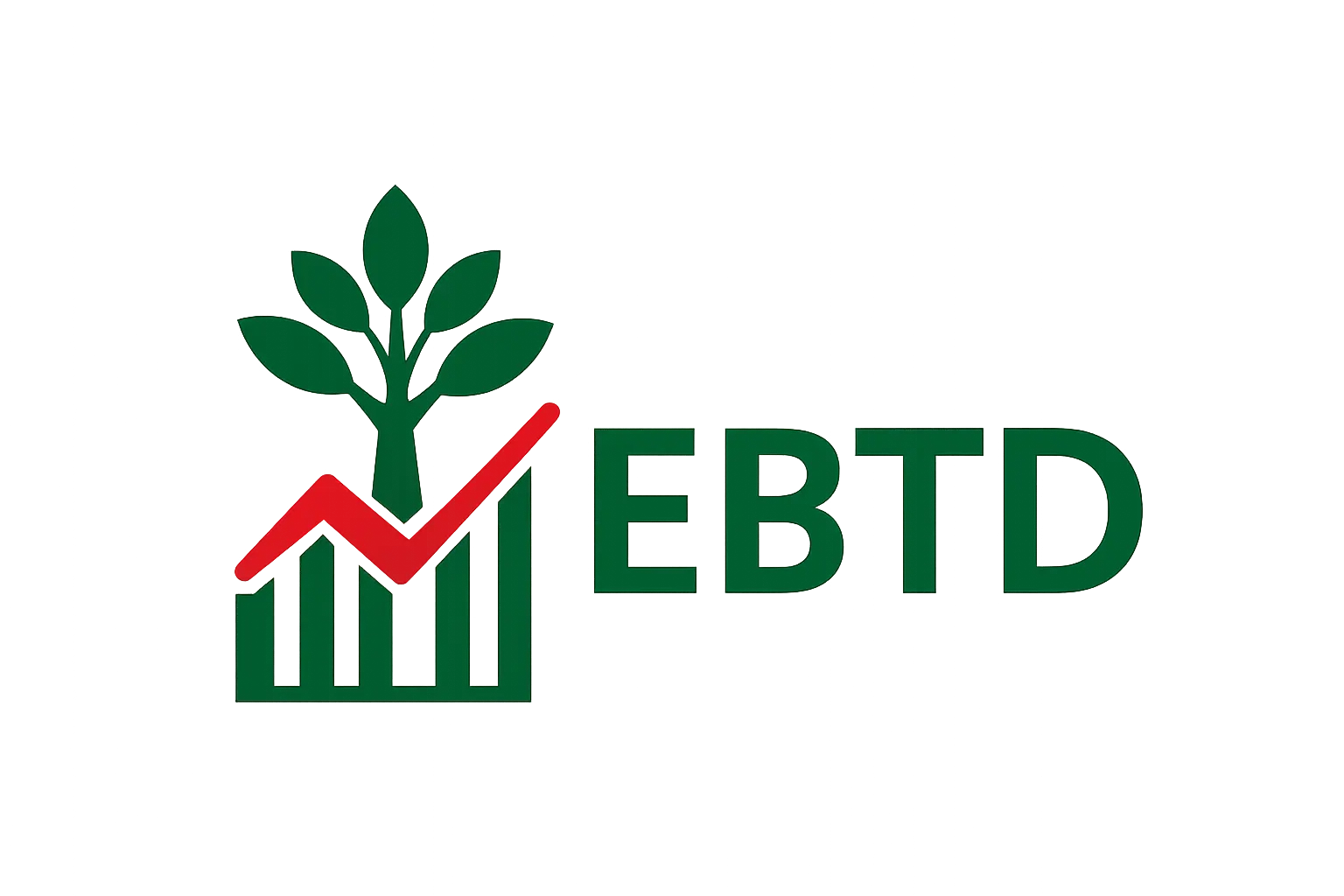
Principal’s Leadership Programme: From Vision to Impact
Three face-to-face events and six online modules — aligned to international leadership evidence, tailored for Bangladesh (BD).
Our Principal’s Leadership Programme is built around global evidence and anchored in the EBTD Leadership Behaviours and the EBTD Deliberate Practice Model. Across three immersive face-to-face events and six online modules, you’ll develop the knowledge and daily leadership habits to lead a school effectively — from culture and curriculum to behaviour, CPD, implementation and governance.
Programme structure
- 3 face-to-face events: Each event introduces two modules through interactive workshops, case studies and expert input.
- 6 modules: After each event, complete ~20 hours of online learning per module to embed and apply ideas to your context.
- Evidence-informed content: All modules align with the global evidence base on effective school leadership and EBTD’s own frameworks.
- Two golden threads: Every module is shaped by the EBTD Leadership Behaviours and uses deliberate practice cycles (DEFINE – MODEL – PRACTISE – REFINE – REFLECT) to turn principles into daily leadership actions.
How you will learn & lead at EBTD
EBTD Leadership Behaviours: who you are as a leader
The programme is underpinned by the EBTD Leadership Behaviours — ten interconnected behaviours such as self-reflection, integrity, accountability with collective purpose, inclusive leadership and leading by example. These behaviours shape what we prioritise in each module and how you reflect on your own practice, so leadership development is about daily actions, not slogans.
EBTD Deliberate Practice Model: how you change your practice
Every module uses the EBTD Deliberate Practice Model (DEFINE – MODEL – PRACTISE – REFINE – REFLECT). You will define one small leadership move, see it modelled, practise it safely, refine it with feedback and then reflect on the impact in your school. Over time, these cycles build confident, sustainable leadership habits.
Module 1
School Culture & Vision
Face-to-face day
You’ll explore how high-quality teaching and positive relationships shape a school’s culture. Research shows that great teaching has a lasting positive effect on pupils’ life chances, particularly for disadvantaged learners. You’ll examine how to develop a clear vision, set high expectations and create an inclusive environment where staff and pupils thrive. The session highlights the importance of mutual trust and respect among teachers, pupils, parents and colleagues — and how that trust supports behaviour, motivation and academic success. Throughout, you’ll connect explicitly to EBTD Leadership Behaviours such as Self-Reflection and Understanding People, Integrity and Trustworthiness and Respect and Inclusive Leadership.
Online module
- Analyse your school’s vision and values, and align them with the curriculum and community.
- Develop strategies for communicating vision and expectations to staff, pupils and stakeholders.
- Study case studies of schools that have built strong cultures grounded in equity and high expectations.
- Reflect on how positive relationships with parents and carers can bolster student success.
Key questions
- What does a high-expectations culture look and feel like in your school?
- How does your vision translate into daily actions and routines?
- How can you build relationships that enhance motivation, behaviour and achievement?
How this transforms practice
A compelling vision and inclusive culture galvanise staff and pupils. When leaders prioritise high-quality teaching and invest in relationships, schools see better behaviour, higher motivation and improved outcomes. You’ll learn to lead with clarity, align your team and create an environment where everyone can thrive — and use deliberate practice cycles to embed new leadership routines linked to the EBTD Leadership Behaviours.
Module 2
Leading Teaching & Learning
Face-to-face day
This module focuses on raising teaching quality — a stronger lever for pupil outcomes than almost any other school factor. Sessions cover adaptive teaching (meeting diverse needs without lowering expectations), the importance of secure subject knowledge and instructional clarity, and whole-school supports such as coaching and lesson study. You’ll consider behaviours such as Leading Continuous Improvement, Impact Through Communication and Influence and Leading by Example.
Online module
- Analyse data to identify areas for improvement in teaching and learning.
- Develop plans for mentoring and coaching staff to improve practice using deliberate practice principles.
- Explore inclusive teaching strategies that provide targeted support while maintaining high expectations.
- Reflect on how to evaluate the impact of teaching improvements on pupil outcomes.
Key questions
- How do you identify and nurture excellent teaching in your school?
- Are teachers adapting lessons responsively without creating “one task for every pupil”?
- What systems support teachers to continually develop their practice?
How this transforms practice
Focusing on teaching quality and adaptive approaches ensures all pupils — including those with SEND — make progress. You’ll build a professional culture where expert teaching flourishes, narrowing gaps and boosting achievement, and practise leadership routines (such as lesson feedback conversations) through the DEFINE–MODEL–PRACTISE–REFINE–REFLECT cycle.
Module 3
Curriculum Design & Assessment
Face-to-face day
A knowledge-rich, coherent curriculum and effective assessment are the bedrock of great schools. You’ll explore how curricula should set out the knowledge, skills and values pupils need, treating subjects as distinct disciplines. We introduce backward design — planning assessments before lessons to align teaching with desired outcomes — and emphasise mastery of foundational concepts (e.g., systematic synthetic phonics for early literacy). You’ll also discuss formative assessment and high-quality feedback that moves learning forward.
Online module
- Audit your existing curriculum for coherence, progression and inclusion.
- Design/refine sequences of learning that revisit core concepts from different angles.
- Develop assessment strategies that provide actionable information and feedback that helps pupils improve.
- Balance summative accountability with formative assessment that supports learning.
Key questions
- Does your curriculum set out what pupils should learn and why?
- Are assessments aligned with curriculum goals and used to inform teaching?
- How can feedback be both efficient and impactful?
How this transforms practice
Aligning curriculum, teaching and assessment ensures pupils build secure knowledge over time. Leaders can monitor progress accurately, support teachers effectively and ensure all pupils reach ambitious goals. You’ll practise concrete leadership moves such as curriculum review meetings and assessment scrutiny, using deliberate practice to refine how you lead these processes.
Module 4
Behaviour & Inclusive Practice
Face-to-face day
Creating a calm, purposeful learning environment is essential. This module examines whole-school behaviour approaches, emphasising consistency and coherence across policies and routines. You’ll explore how positive relationships, clear expectations and explicit teaching of behaviour lead to better outcomes, plus inclusive practice including identification and support for SEND. Leadership behaviours such as Accountability With Collective Purpose and Respect and Inclusive Leadership are foregrounded.
Online module
- Review your behaviour policy and identify areas for improvement.
- Plan proactive routines (meet-and-greet, positive reinforcement, reset routines).
- Develop systems for identifying and addressing SEND with targeted support and high expectations.
- Plan how to involve families and external agencies in supporting behaviour and inclusion.
Key questions
- How consistent are expectations and routines across your school?
- Do staff understand the reasons behind pupils’ behaviour and respond consistently?
- How do you ensure pupils with SEND receive the support they need?
How this transforms practice
Consistency and coherence in behaviour policy have a significant impact on learning. When leaders align routines and expectations and promote inclusive practice, staff can focus on teaching and pupils on learning. You’ll rehearse key leadership interactions — for example, restorative conversations or behaviour briefings — through deliberate practice, so these become confident, repeatable behaviours.
Module 5
Professional Development & Staff Capability
Face-to-face day
Build and sustain a culture of professional learning. Evidence shows that high-quality, evidence-based professional development improves teacher effectiveness and pupil outcomes. You’ll create a clear theory of change for PD, provide time/resources for staff learning, and build supportive environments for experimentation and reflection — closely aligned with the EBTD Leadership Behaviours and the EBTD Deliberate Practice Model.
Online module
- Audit current PD provision and align it with school priorities.
- Design PD that is sustained, coherent and grounded in evidence, using clear mechanisms and deliberate practice cycles.
- Develop structures for mentoring, coaching and peer observation.
- Plan to evaluate the impact of PD on teaching and pupil achievement.
Key questions
- How intentional and evidence-informed is your current PD offer?
- Do teachers receive time and support to embed new practices?
- How can you create a culture where professional learning is continuous and collaborative?
How this transforms practice
Evidence-based PD leads to lasting improvements in teachers’ knowledge and skills, helping to narrow disadvantage gaps. Leaders who design coherent programmes foster continual improvement and shared purpose. You’ll practise planning PD sequences that deliberately build new habits over time.
Module 6
Organisational Management, Implementation & Governance
Face-to-face day
Bring together organisational strategy, implementation and governance. You’ll explore managing resources, budgets and staffing; distributing leadership; and the principles of effective implementation (evidence-informed decisions, preparation, integrated activities, contextual adaptation). We also examine governance and accountability — working with boards and stakeholders for sustainable improvement.
Online module
- Review organisational structures, financial management and resource allocation.
- Develop plans for implementing new initiatives using effective implementation principles and deliberate practice cycles.
- Explore case studies of distributed leadership and governance partnerships.
- Create a governance development plan clarifying roles, responsibilities and accountability.
Key questions
- How do you ensure decisions are evidence-informed and context-appropriate?
- What systems enable distributed leadership and effective resource management?
- How can you work with governors and external partners to support your school’s vision?
How this transforms practice
Effective organisational management and governance enable schools to operate smoothly and implement change successfully. Leaders who apply evidence-informed implementation principles achieve sustainable improvement. You’ll practise planning and communication routines so that strategic decisions translate into clear, actionable next steps for staff and governors.
This programme is part of EBTD’s leadership development in Bangladesh and connects with the wider Teacher Training (BD) offer.
If you found this useful, join the EBTD newsletter for monthly, research-backed leadership and classroom improvement tips for Bangladesh schools — no spam, just what helps.
